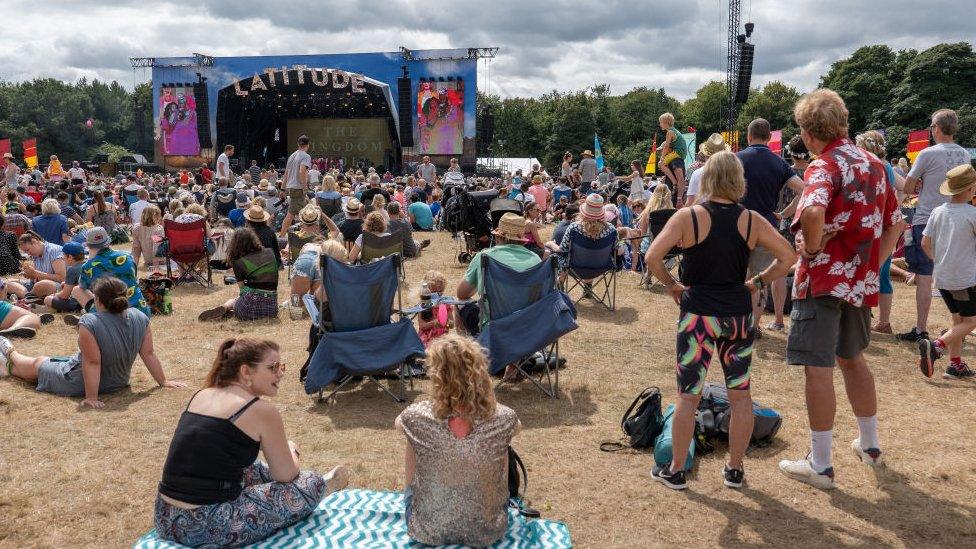'The clock is ticking' for summer music festival season
- Published
- comments
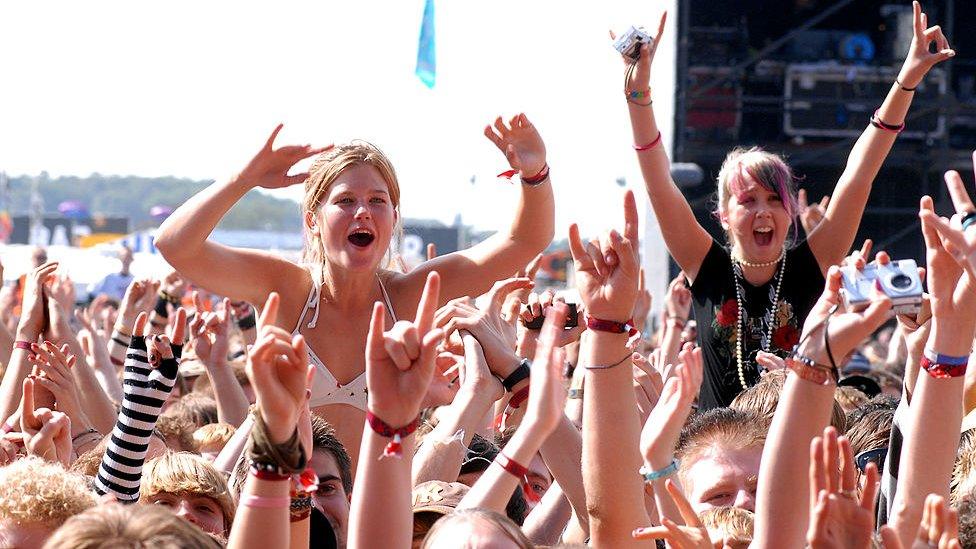
Will sights like these really be possible in June? Festival organisers are hoping so
Music festival organisers say they're "running out of time" to save their events this summer, as they renew calls for the government to intervene.
In recent weeks, Download, Boomtown and Deershed have all pulled the plug, joining Glastonbury, which cancelled its 2021 festival in January.
"What's currently a steady stream of cancellations is in danger of becoming a torrent," Greg Parmley of trade association Live told the BBC.
"We're being timed out for the summer."
The live music industry has been calling on the government to provide cancellation insurance for festivals.
That would allow organisers to go ahead with their plans without suffering financial losses if they were forced to cancel their events due to a new spike in Covid cases.
'Far too risky'
But after months of lobbying, no such scheme has been put in place. Both Boomtown and the Deershed cited that as the main reason for their cancellations this week.
"The risks of running without insurance leave [us] financially exposed well beyond our comfort zone," said Deershed's Oliver Jones and Kate Webster, external.
"It just became very clear that it just was far too risky, financially," added Boomtown organiser Anna Wade, who said it costs around £17m to stage her 70,000-capacity event every year.
As an independent festival, she said, "we obviously don't have large pots" of money, "so that's puts us in a much riskier position".
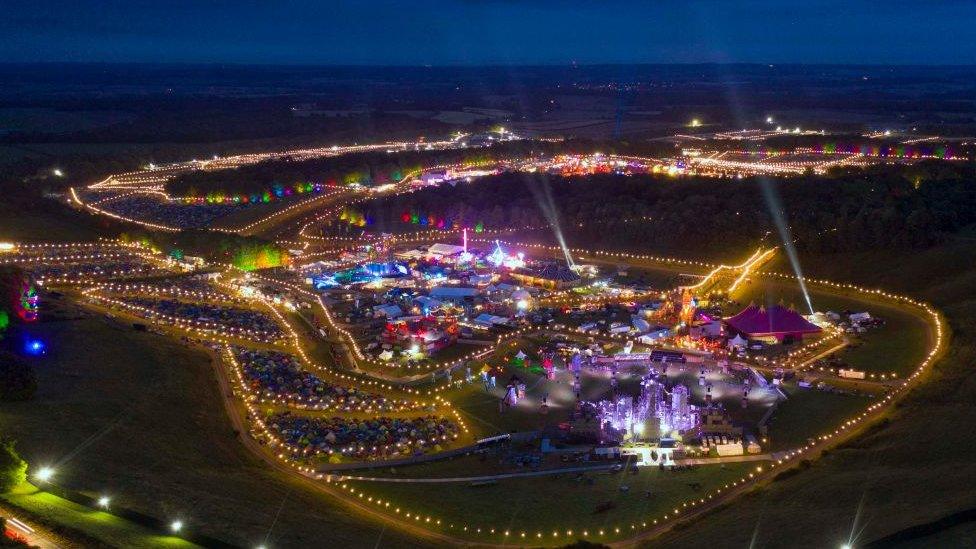
Boomtown's immersive, theatre-like production takes months to put together
Wade would have had to start paying contractors in the coming weeks to work on the ambitious city-scale layout of unique immersive districts and film-like sets that are built on Boomtown's site in the South Downs National Park.
With commercial insurers unwilling to underwrite the project, she felt forced to scrap her plans this week - but is still hopeful the government will step in to help other, smaller events.
"You can't even drive a car without insurance. It's not a luxury," she said. "So, yes, it's too late for Boomtown, but it's not too late to save the save the summer."
Rob Nosworthy, who runs Hereford's Nozstock festival, also hopes the government will step in - but worries that nothing has been announced so far.
"It feels like we're being timed out," he said. "It doesn't feel like support is forthcoming and festivals are starting to fall because there's nothing else they can do. It's quite stressful to be honest."
His festival, which is due to see Sister Sledge, Utah Saints and Bill Bailey perform at the Nosworthy family farm, is still expecting to go ahead in July. The smaller scale of the event means he can be more "nimble" than Boomtown, he said.
"We could probably wait as late as middle of June before we had to make some really tough decisions." But he warned: "Our family farm is on the line. We use it as collateral, essentially."
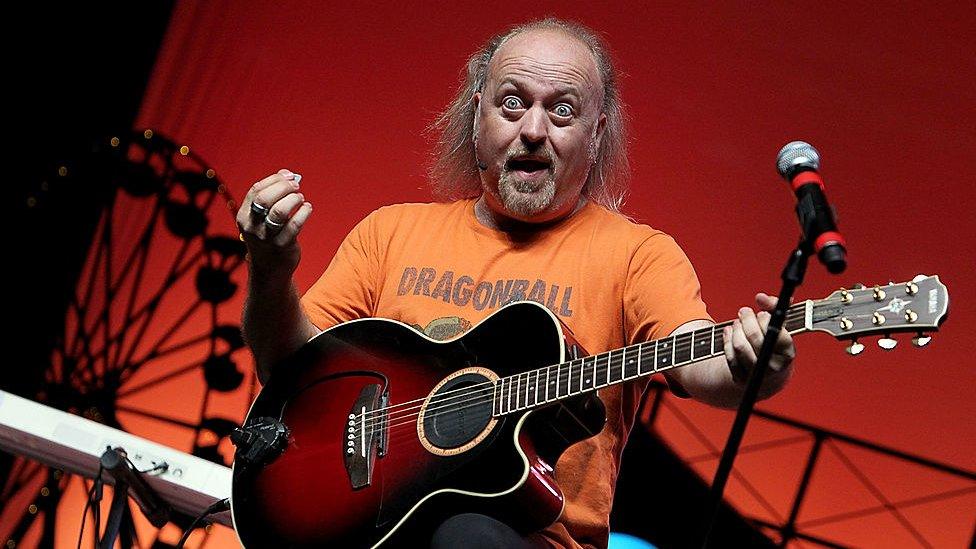
Bill Bailey is among the acts hoping to play Nozstock in July
The government has provided a Covid-related insurance scheme for TV and film production, but last month culture minister Caroline Dinenage suggested the issue for festivals was one of scale.
"It would be very difficult to do this for festivals alone," she told MPs. "If we were to put in place a package like this, there would be huge demand for it to be put in place for all other types of big live events, everything from sporting to business events to country shows to museums."
Julian Knight MP, who chairs the House of Commons culture select committee, said he "wasn't convinced" by that argument.
He pointed out that the government has had to provide insurance for the pilot events it is staging next month.
"They wouldn't be doing that if the [insurance] market was working, so there's market failure," he said. "And when markets fail, and it impairs economic activity, that is, from a free-market perspective, when government should step in."
'Low risk'
However, Mr Knight added: "There is still a great deal of opposition, I think, in the Treasury to the idea that taxpayer money should be used to provide an insurance scheme for festivals.
"Now, I think actually that's short sighted, because a properly-constructed scheme will give the sector enough confidence that, in the second half of this year, we could see a decent degree of [festival] activity, which would lead to greater tax revenue."
Rob Nosworthy agrees: "The government could make a lot of money, if they're confident [live events] are going to go ahead this summer."
To insure Nozstock, the festival would have to hand over "£20,000 to £30,000", which the Treasury would keep if the current target of emerging from lockdown on 21 June remained in place, he said.

Stormzy is set to headline Reading & Leeds festival in August, two months after lockdown restrictions are due to end
The risk to the government is relatively low, according to Tim Thornhill at Tysers Insurance Brokers, who helped to set up the Film & TV Production Restart Scheme last year and has advised the government on what a similar scheme for live events could look like.
By his calculations, the Treasury would face exposure of £250m to cover the UK's 975 festivals, which would "unlock around £9bn of economic value to local and national economies".
However, he said, "the clock is ticking" to establish such a scheme because it will take "weeks" to arrange cover.
"Every single day that is lost, is another potential event that we've lost in the summer," he said.

Although Glastonbury is postponed, bands including Haim will play a livestream concert at the site next month
Trade association Live has come up with an alternative plan - using some of the spare cash in the government's Culture Recovery Fund to create a contingency fund offering partial protection to organisers.
"It's a Hail Mary," said Greg Parmley, "a last-ditch attempt to get something in place before we simply run out of time."
But Julian Knight thinks the chances are slim. "Do I think that realistically they're going to just allow the money to be shunted over from the Cultural Recovery Fund to be used for this? I doubt it," he said.
In a statement, the Department for Digital, Culture, Media and Sport said: "We are aware of the wider concerns about securing indemnity for live events and are exploring what further support we may provide."
But with summer approaching, many festival organisers are having to bet that restrictions on public gatherings will be lifted as planned in June. If not, they face financial ruin.
"If you can guarantee to me that on in the second week of July there won't be a local lockdown because of an unforeseen variant, then yeah, I'd go for it. Let's push on," said Nosworthy.
"But you can't guarantee that, no-one can, and that risk is very real. There's too much on the line."
Related topics
- Published27 July 2021

- Published20 April 2021
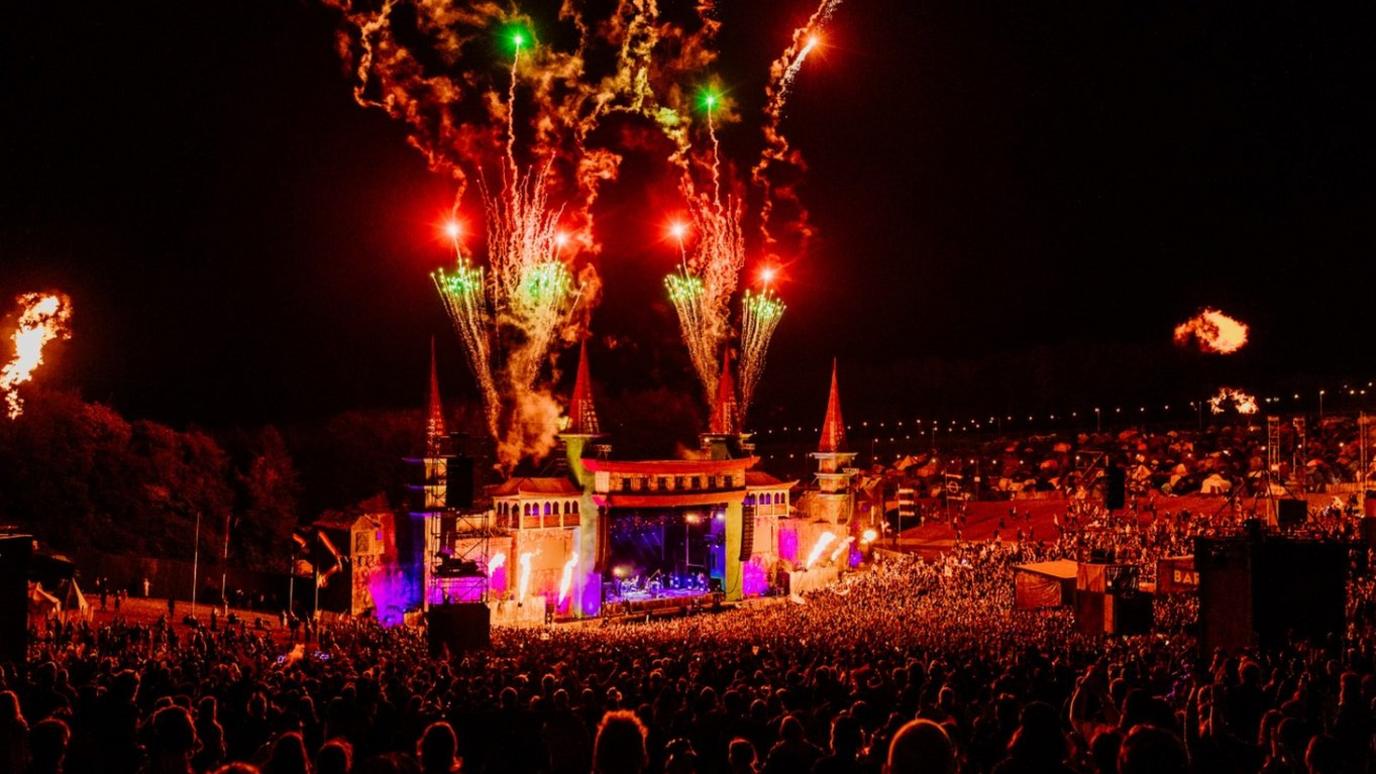
- Published7 April 2021

- Published1 March 2021
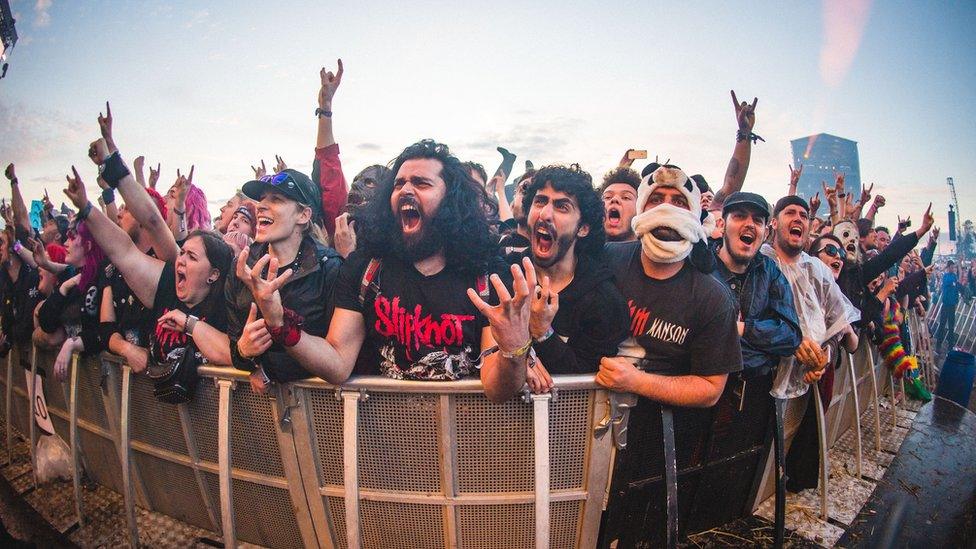
- Published24 February 2021
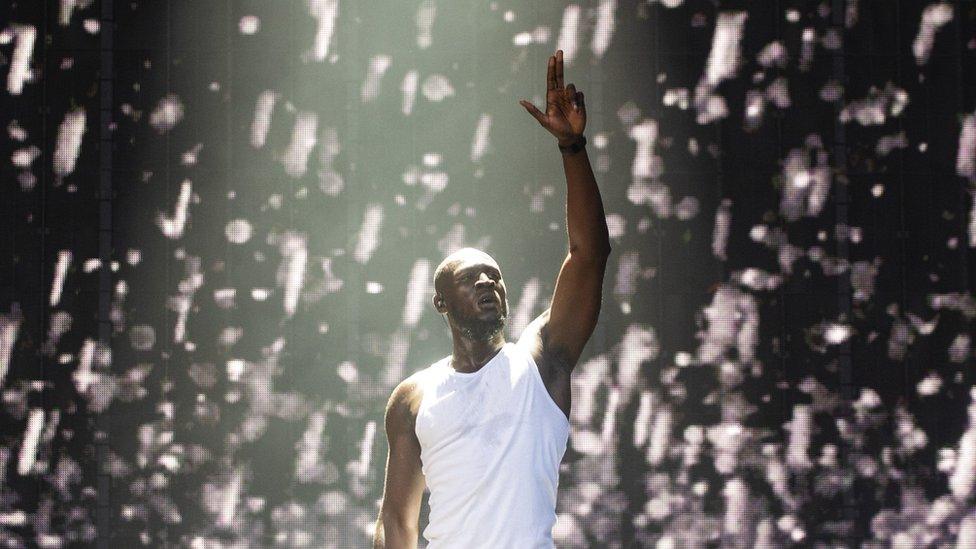
- Published2 February 2021
